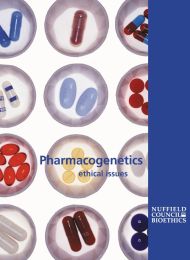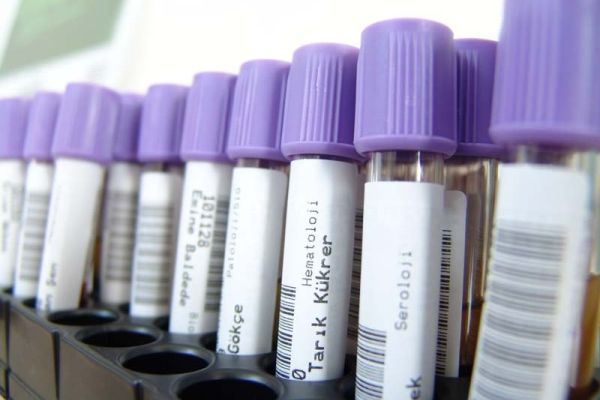Pharmacogenetics: ethical issues
Report
Published 22/09/2003

It is important to ensure that patients are protected if information about them is used in clinical trials.
What level of anonymisation is appropriate?
The implications for patients will depend on how easily samples can be traced back to them. The report considers the various degrees of anonymisation that be used, ranging from samples that are directly identifiable to those that are fully anonymous.
One likely approach would be to use anonymised data. Genetic and clinical data would be collected during a trial, but a code linking patients with their samples would be destroyed after the trial so they could not be matched subsequently. However, this approach would not allow longer term follow-up of an individual. New samples would need to be taken from patients if adverse reactions occurred.
We conclude
The greatest degree of anonymity compatible with the research should be used to protect the privacy of participants. Researchers should explain to prospective participants how the samples will be stored and the implications for them.
Should participants be given individual feedback?
Participants need to know whether the research is likely to give rise to information that is directly relevant to their health. In some cases, researchers provide individual feedback to patients. In others, researchers offer individual test results only if patients ask for the information. Provided their data has not been anonymised, research participants in the UK are able to request access to information about themselves. However, it is not clear to what degree results from pharmacogenetic trials will be reliable or clinically useful.
We conclude
Feedback of the overall results of research should be promoted. We are sympathetic to the view that patients should be given individual feedback if the information is clinically useful and validated. But this will not often be the case with results from early-stage pharmacogenetic research. Decisions regarding the provision of individual feedback should be explained to the relevant research ethics committee.
Is genetic information special?
Some people believe that genetic information is fundamentally different from other forms of medical data. This view is called ‘genetic exceptionalism’. There are a number of reasons for this belief, including the idea that genetic information is uniquely identifying and highly predictive, for example revealing susceptibility to a disease. The information may also be of interest to third parties including insurers and employers.
However, in the context of pharmacogenetics, an undue emphasis on the fact that information is genetic can be unhelpful. Not all genetic tests convey highly predictive or diagnostic information about a patient or their relatives. Equally, blood tests, cholesterol tests and HIV tests can also give reliable predictive information, without analysis of DNA. And non-genetic tests may also provide indirect genetic information.
We conclude
Genetic information does not necessarily raise different ethical issues from other types of medical information. We believe that the most important aspect to consider is the information that a test reveals and its implications for the patient, not whether the information is directly genetic.

Share